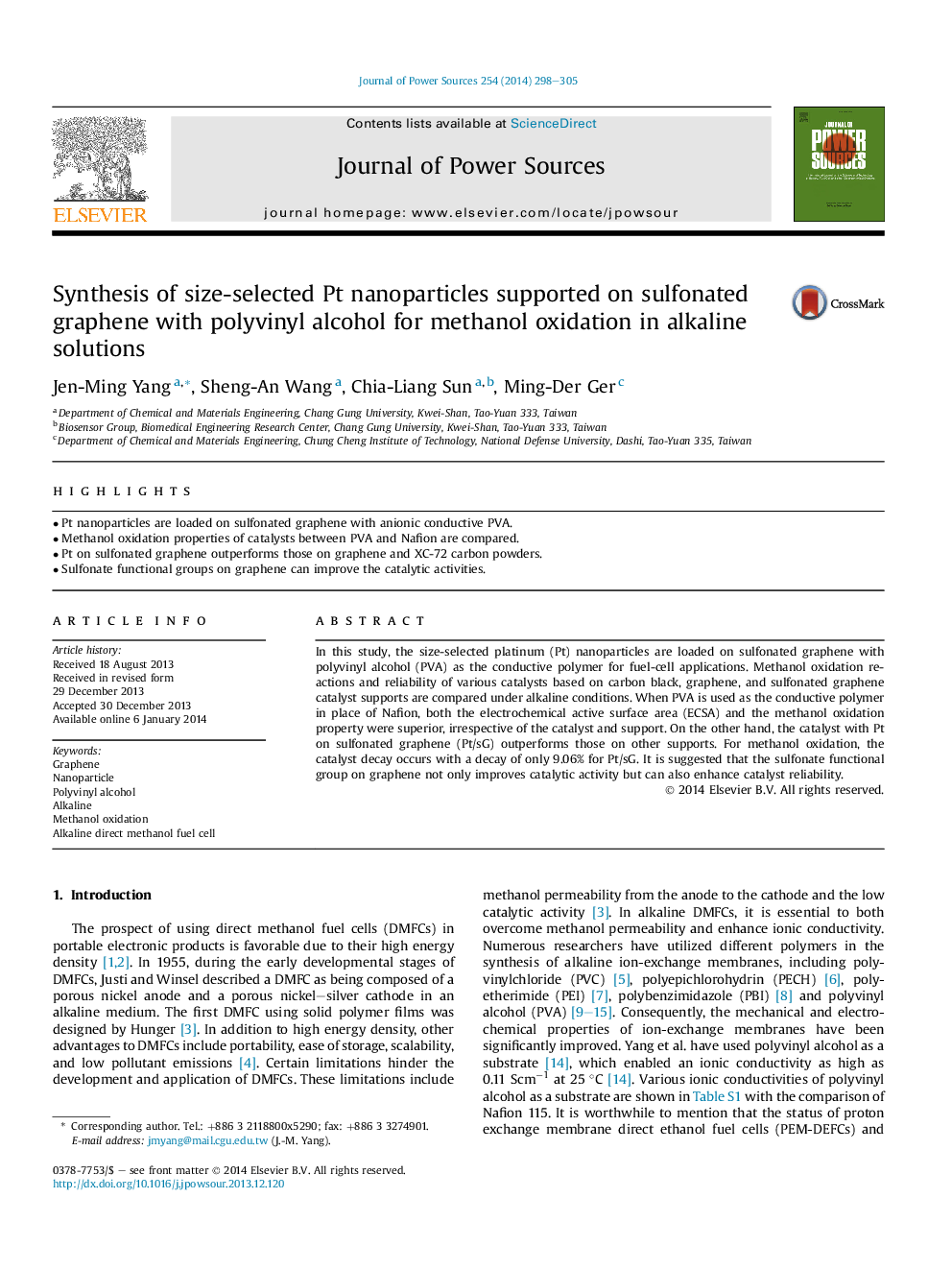| Article ID | Journal | Published Year | Pages | File Type |
|---|---|---|---|---|
| 7737364 | Journal of Power Sources | 2014 | 8 Pages |
Abstract
In this study, the size-selected platinum (Pt) nanoparticles are loaded on sulfonated graphene with polyvinyl alcohol (PVA) as the conductive polymer for fuel-cell applications. Methanol oxidation reactions and reliability of various catalysts based on carbon black, graphene, and sulfonated graphene catalyst supports are compared under alkaline conditions. When PVA is used as the conductive polymer in place of Nafion, both the electrochemical active surface area (ECSA) and the methanol oxidation property were superior, irrespective of the catalyst and support. On the other hand, the catalyst with Pt on sulfonated graphene (Pt/sG) outperforms those on other supports. For methanol oxidation, the catalyst decay occurs with a decay of only 9.06% for Pt/sG. It is suggested that the sulfonate functional group on graphene not only improves catalytic activity but can also enhance catalyst reliability.
Keywords
Related Topics
Physical Sciences and Engineering
Chemistry
Electrochemistry
Authors
Jen-Ming Yang, Sheng-An Wang, Chia-Liang Sun, Ming-Der Ger,
